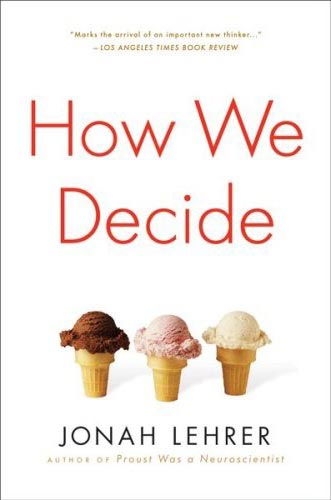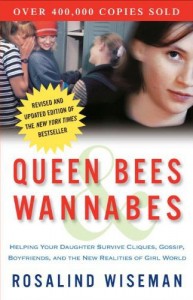|
|
October 14, 2010
 Who do you think you are? Great gobs of vitural ink have been sloshed around describing America’s “decline.” In a recent Newsweek story about the 100 best countries we didn’t even make the top 10. We’re Number 11. But, it’s not like Newsweek dropped a bombshell. We’ve all noticed the slippage for a while. From family problems to school problems to dysfunctional legislators to holy book burners.
Oh yes, my friends, we’ve got Trouble with a Capital T that rhymes with D and that spells DECLINE. All the pity party laments boil down to just one thing: “America’s lost its competitive edge.”
Oh yeah? Not so fast, dude. Sure, we may be losing the competition for top world ranking in stuff like education, health, quality of life, economics, and political environment. But what about Top Dog status in stuff that really matters? For example, when it comes to vying for popularity within their peer group no kids on Earth come close to the clawing, biting, sheer grit of American teens.
In light of recent horrific in-your-face school bullying plus the cyber predator stealth assaults launched from smart phones and PCs, I think I’ve figured out what’s driving at least part of it. It’s competition. And we’re scary good at it.
I’m sure we’d all agree that we hate bullying behavior. And it goes without saying we hate bullies. Every last one of them. But for the record, there is no them. It’s all us. From time to time, to one degree or another, consciously or un, we all dismiss other people as unworthy of respect. Folks, that’s the core of bullying. And we behave that way when we’re competing with each other.
Think about it. If you’re hotter (or cooler) than me or I’m hotter or cooler than you, we may distrust each other. We may try to bring each other down in thought, word or deed. If you’re smarter than me or way stupider, you’re on my hit list. If you’re fatter than me or thinner, if you wear more or less expensive clothes, if you’re a super jock or a super geek… watch out! ‘Cause whatever we are that’s “different” may be seen as a threat to someone else’s never-ending quest for votes, money, power, friends… love. And we all know what happens when we feel threatened. We attack. Sounds ruthless, but we’ve gotta get real. We’re on the edge here. Each one of us adults and kids, we’re socialized and primed to compete with each other and often that means giving each other a hard time.
So, you still in this competition or are you ready to opt out?
UPDATE: 2/2/12: Just got this great bullying awareness and prevention info-graphic from @MAT@USC aka, Master of Arts in Teaching… because it is an art!

October 2, 2010
Yesterday my friend Rachel wrote to find out if I’d blogged yet about the cyberbullying incident that ended in a Rutgers University freshman killing himself. I told her the news had really depressed me but that I didn’t have any insights that couldn’t be found elsewhere. I mean what do you say when (yet another) teen is so victimized by bullies he/she can’t figure out what the hell to do to make things OK again and gives up everything just to end the suffering? I’ve got nothing to say. I’m sitting here crying. The casualness with which these acts of torment are perpetrated absolutely stuns me. But what else is new?
So, no. I wasn’t going to write anything.
Then I watch Ellen Degeneres on video talking about this senseless act of cruelty. Looking straight at the camera and with obvious emotion Ellen said, “It’s hard enough being a teen and figuring out who you are without people attacking you.” To the adults watching she said, “There are messages everywhere that validate this kind of bullying and taunting and we have to make it stop.” And to the kids watching, she offered this, “…things will get easier. People’s minds will change and you should be alive to see it.”
Still I was not going to blog about what happened to Tyler Clementi and what he did as a result. Even though his death was the fourth in a string of Welcome Back-to-School homophobic attacks on teens that ended in suicide. It all sucks, but what more is there to say?
Then I listened to Justin Patchin of the Cyberbullying Research Center, a clearinghouse of information dedicated to providing information about “…the nature, extent, causes and consequences of cyberbullying amongst adolescents.” Patchin told NPR’s Melissa Block that when he speaks to teens who use their phones and computers to commit these acts of intentional cruelty they “genuinely do not realize that harm could come from it.” He went on to say that these kids “don’t see it as something wrong.” Rather, they think of what they’re doing as “fun or funny” and “not that big of a deal.”
That’s when I knew I needed to write. The tormentors don’t see it as something wrong?! For real?!! If that’s the case then we’re looking at a whole lot of broken kids. Broken in a way that prevents them from thinking beyond the itch of “Hey I got a great idea!” So broken they blithely launch a personally addressed cluster bomb packed with malice and truly believe it’s “not a big deal.”
With kids like that as our only hope for the future we ‘d be in deep doodoo.
Fortunately, these aren’t the only kids out there. There are plenty of kids and adults who aren’t buying into the notion that any of this is fun or funny. They’re deadly serious about fighting back, supporting each other and changing the Culture of Cruelty for any kid, tween or teen who’s catching flak for being different. GLBT teens, check out Dan Savage’s new “It Gets Better” project.
Oh, and by the way, October is National Bullying Prevention Month… Don’t just sit there, be part of the solution.
UPDATE: 6:49 PM Talk about cyber-bullying, just came back from The Social Network, a cautionary tale from the Real Friends vs. The Other Kind files. Totally worth seeing.
UPDATE: March 16, 2012 Today, a New Jersey jury found Dharun Ravi, Tyler Clementi’s former roommate guilty of bias intimidation among other charges.
UPDATE: May 21, 2012 Superior Court Judge Glen Berman handed down Dharun Ravi’s sentence: 30 days in jail and 3 years probation after having been found guilty of numerous crimes, including invasion of privacy and bias intimidation (a hate crime) http://video.msnbc.msn.com/nightly-news/47511677/#47511677

May 12, 2010
 How the brain makes up its mind Last month at a DC bookstore I saw Jonah Lehrer’s bestseller How We Decide and instantly decided to buy it. Now that’s effective marketing!
I’m an anti-bullying passionista currently up to my medulla oblongata in our new Cruel’s Not Cool! campaign. Which is why it’s no surprise that everything I hear lately passes through the “bullying” filter.
So… I’m reading a chapter in Lehrer’s book about decision making and credit card spending and I have a minor epiphany about bullying. (Stick with me for minute.)
Apparently when we buy something with cash we simultaneously feel a loss in the part of the brain associated with pain. “There goes some of my money!” Because it hurts, people who buy with cash are less likely to make those impulsive purchases which can screw you in any economy.
But brain imaging experiments indicate that buying with a credit card reduces feelings in the pain region of the brain and provides you with an instant reward (“I get what I want NOW!”). In other words, when you buy with plastic you don’t feel bad so you spend more without thinking about how you’ll pay. In 2006 Americans spent more than $17 billion in credit card penalty fees. (Ouch!)
 So are you gonna play nice, or not? Back to bullying. If you tease someone face to face and see them hurting, you (hopefully) feel some “pain” in the brain which will make you less likely to do it again. We’re not big on punishing ourselves, but we do like rewards. (More on this in a bit…)
If a bully regularly IMs or texts insulting, vile messages, then bullying, like credit card spending and drone warfare, becomes an abstract and “painless” habit so the bully will likely do it more. Especially when there’s a reward.
When it comes to sharing a “joke” with a friend (which involves teasing a third party) vs. not trash-talking… the choice to the middle school student is clear. Her #1 currency is popularity. The emotional pull toward mimicking her friend’s mean behavior is way stronger than the rational mind’s thinking “Hm, this gossiping could come back to bite me.”
The tween brain works against rational thinking when it comes to bullying and a host of other things (including getting a start on that term paper instead of letting it slide until the night before it’s due). Their developing brain matter is notoriously poor at impulse control, planning ahead and being able to predict the outcome of one’s choices.
Bottom line… being thoughtful and rational about bullying is a monumental challenge for 11-14 year olds!
In a typical middle school where bullying is rampant, what’s the reward for not engaging in malevolent behavior? What’s the reward for being a truly nice kid? Until a school comes up with the answer to that it’s not likely that kids will choose doing the right thing over being popular.
Your thoughts?

December 7, 2009
 "Queen Bees and Wannabes: Helping Your Daughter Survive Cliques, Gossip, Boyfriends, and the New Realities of Girl World" by Rosalind Wiseman Along with the many changes teens experience on the road to adulthood, shifting friendships are some of the most dramatic and painful. It’s especially true for girls. While our daughters muddle through the social muck of middle and high school trying to figure out who’s a friend worth keeping and who is so not, they frequently attack each other in very personal ways.
We can thank technology, in part, for the ease with which today’s girls effectively bash and degrade their fellow students. But technology didn’t teach them that this stuff is OK. Could it be they’ve picked up some life lessons from the snarky remarks they’ve heard us make about other women? “My god! She got so fat!” “Whoah! She looks old!” “What happened to her? Is she wearing a mask?” Wait a minute, you say. Maybe those remarks are less than charitable, but they were aimed at celebrities… fair game. We certainly never trash talk anyone we actually know. Well, at least not to her face. But when our daughter has a “problem” with another girl, she is likely to go straight for the jugular.
No parents want to imagine that their sweet little girl would intentionally hurt anyone (no less a friend) but it happens… a lot! What also happens way too often is that girls who are targeted don’t have the courage to speak up for themselves. Which may explain why this friend-to-friend social aggression might be going on via text, IM and Facebook in your home without your knowing it.
In this week’s podcast I talk with Rosalind Wiseman, author of Queen Bees and Wannabes: Helping Your Daughter Survive Cliques, Gossip, Boyfriends, and the New Realities of Girl World which has just been re-released in a new edition covering the impact of technology on Girl World. Twice a New York Times bestseller, Queen Bees & Wannabes was the basis for the 2004 movie Mean Girls. Rosalind’s follow up book Queen Bee Moms and Kingpin Dads: Dealing with the Difficult Parents in Your Child’s Life was released in 2006.
Rosalind Wiseman is an internationally recognized expert on children, teens, parenting, bullying, social justice, and ethical leadership.
Listen to my interview with Rosalind Wiseman right here:
[QUICKTIME http://www.anniefox.com/podcast/FC013.m4a 300 300 false true]
If you have iTunes, you can subscribe to this podcast in the iTunes Store.
Or, you can download an MP3 version here.
Upcoming guests include:
Diane E. Levin, co-author (with Jean Kilbourne) of So Sexy So Soon: The New Sexualized Childhood And What Parents Can Do to Protect Their Kids
Susan M. Heim, author of It’s Twins! and Chicken Soup for the Soul Twins and More
Hannah Friedman, author of Everything Sucks: Losing My Mind and Finding Myself in a High School Quest for Cool
Dara Chadwick, author of You’d Be So Pretty If…
Matthew Amster-Burton, author of Hungry Monkey: A Food-Loving Father’s Quest to Raise an Adventurous Eater
*What’s a podcast? “A podcast is a series of digital media files, usually either digital audio or video, that is made available for download via web syndication.” –Wikipedia… So, in this case, there’s an audio file for you to listen to (in addition to reading the above).

| |















